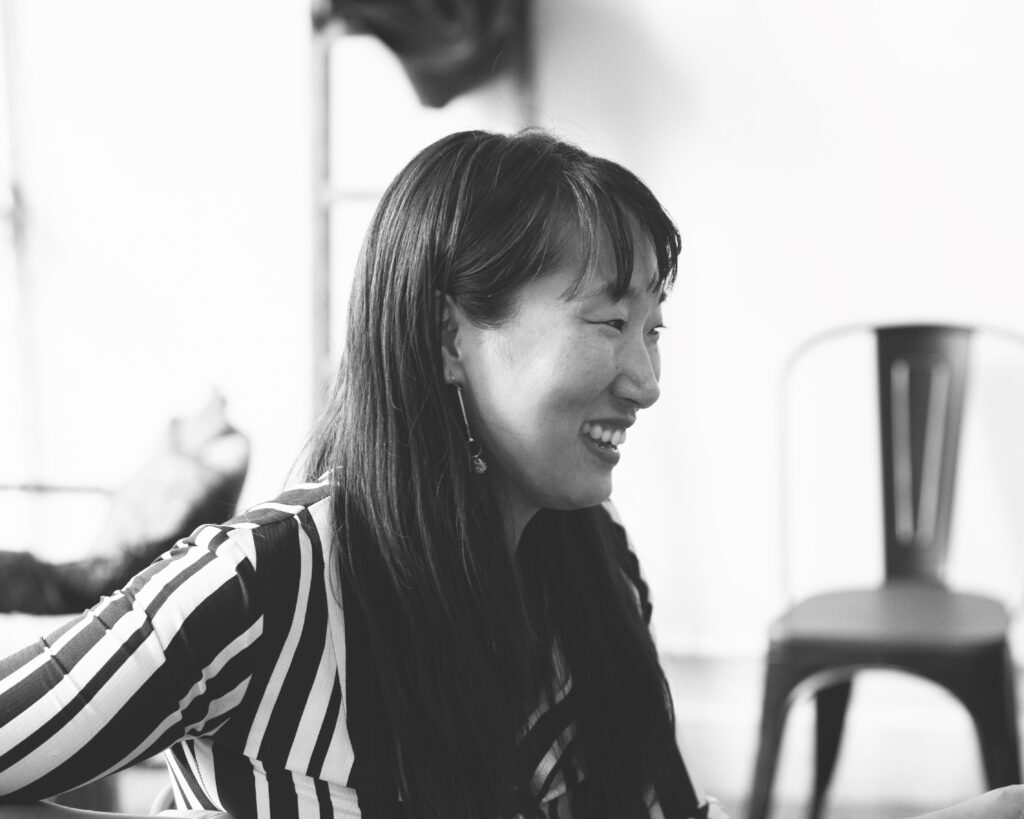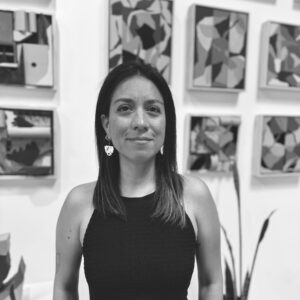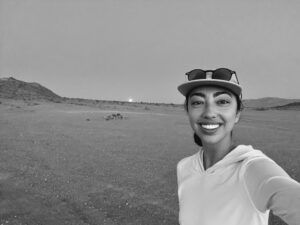The hero’s journey is a well-known narrative structure that has historically involved a man who embarks on an adventure, learns a lesson, uses that lesson to win a battle, then returns home transformed.
There is a similar narrative sold to emerging filmmakers, seeking “victory” in the arena of Hollywood. The myth goes, “If you want to make it in this biz, all you have to do is…”
1) Make a short film
2) Premiere it at Sundance/ Cannes/ Tribeca
3) Find investors with millions of dollars at said festivals
4) Make a feature
5) Premiere that at Sundance/ Cannes/ Tribeca
5) Win an Oscar
6) Enjoy creative freedom and financial stability for the rest of your days.
There is a for-profit industry that preys upon our dreams of achieving this, and as an independent, Asian American, female filmmaker, I have applied to and attended numerous contests, labs, workshops, and residencies— all that aim to push marginalized creators further down this fabled path. Of the contests I’ve been lucky enough to win, some have been helpful. In the best cases, I have met mentors who have given valuable feedback on my work and peers who have become lifelong friends. In the worst cases, I’ve wasted thousands in application fees, festival fees, travel and lodging expenses, only to receive inapplicable or inconsistent advice on how to “break into the industry.”
This advice often has me drowning in self-doubt, not to mention imposter syndrome. So, when FUTURE LYNN invited me to spearhead my own workshop with the goal of uplifting women, my inner critic was the first to voice misgivings: Who I am I to do this? Why should anyone listen to me? At this point in my career, I have directed over 30 music videos, a six-episode miniseries about my intercultural marriage, a proof of concept short hitting the festival circuit next year, and plenty of branded content all over the internet— I don’t think of myself as a “first time director.” And yet, that’s how Hollywood will continue to see me until I make my first feature film.
I fired back at my inner critic that I was tired of paying for labs and workshops that separated filmmakers into the categories of “industry veterans” and “amateurs.” I began to realize how important this opportunity was for me to spotlight creators whose achievements have been minimized or ignored. I decided to handpick eight independent female-identifying and nonbinary directors who were also at my level: made one or two shorts, dying to make a studio feature.
The event had no audience and no “experts.” Just nine filmmakers, who, with the help of FUTURE LYNN, were able to attend for free. “I’m going to guess that most of you had to work second jobs to fund your projects,” I said to nods and knowing looks, when the directors arrived at our event space in Soho. “Most would-be filmmakers never clear that barrier: The cruel reality is that if you want to make art, you’ll have to self-fund it.” Grants exist, but they take months to apply to and win, and most prefer to fund projects in the post-production stage. If you’re a nepo-baby with parents willing to write you a check, good for you. Otherwise? You have to put in your own savings, labor, and time to make your film. “That alone is an enormous accomplishment,” I said, “Today, we are celebrating that!”

In that spirit, we watched a scene from each director’s film and dug into it. Cinematography-enthusiast Louise Nessralla (Flight), walked us through her storyboarding process. Christina YR Lim (B-Side For Taylor), who went to school for theater, recounted her rehearsal process for a penultimate scene which had her lead actor crying and screaming. Nic Yulo (Horizon) talked world-building through set design on her incredible, microbudget sci-fi. Everyone spoke on imposter syndrome.
It’s no secret that women and minorities feel pressure to be twice as good at their jobs in order to be taken half as seriously. When leading a film crew, I’m often forced to project masculinity: I’ll puff out my chest, act like I know things I don’t, and shove my fear down so no one can detect it. What immediately felt different about this workshop was the allowance for feminine energy. Male directors don’t need workshops to uplift their voices; they out-numbered women in Hollywood 6:1 last year. Even so, it’s pretty hard to imagine nine of them sitting around a table, talking about their deepest insecurities.
When I talk about feminine energy, I’m not waging a battle of the sexes. I’m talking about traits that have been historically feminized, and thus, devalued in leadership. The directors on this day displayed personal vulnerability, and compassion for each other. I was able to admit that coming from an editing background, I’d initially been terrified of touching the camera and relied heavily on my cinematographer to help craft the shot until I became more confident. I also felt like a fraud directing actors until I took an acting class myself. The more I shared, the more others opened up too.
“A joke I’ve heard is that the people with the least experience on set are always the director and the production assistant.” Lindsey Ryan (Seasick) exclaimed after recounting the process of filming aboard the Fire Island ferry, and it’s true. While camera people, producers, actors, even makeup artists frequently work with other hires in their department, learning and developing skills along the way, directors are lone wolves. Unlike the old trope of starting at the bottom and working hard to move up, for directors, there is no ladder.
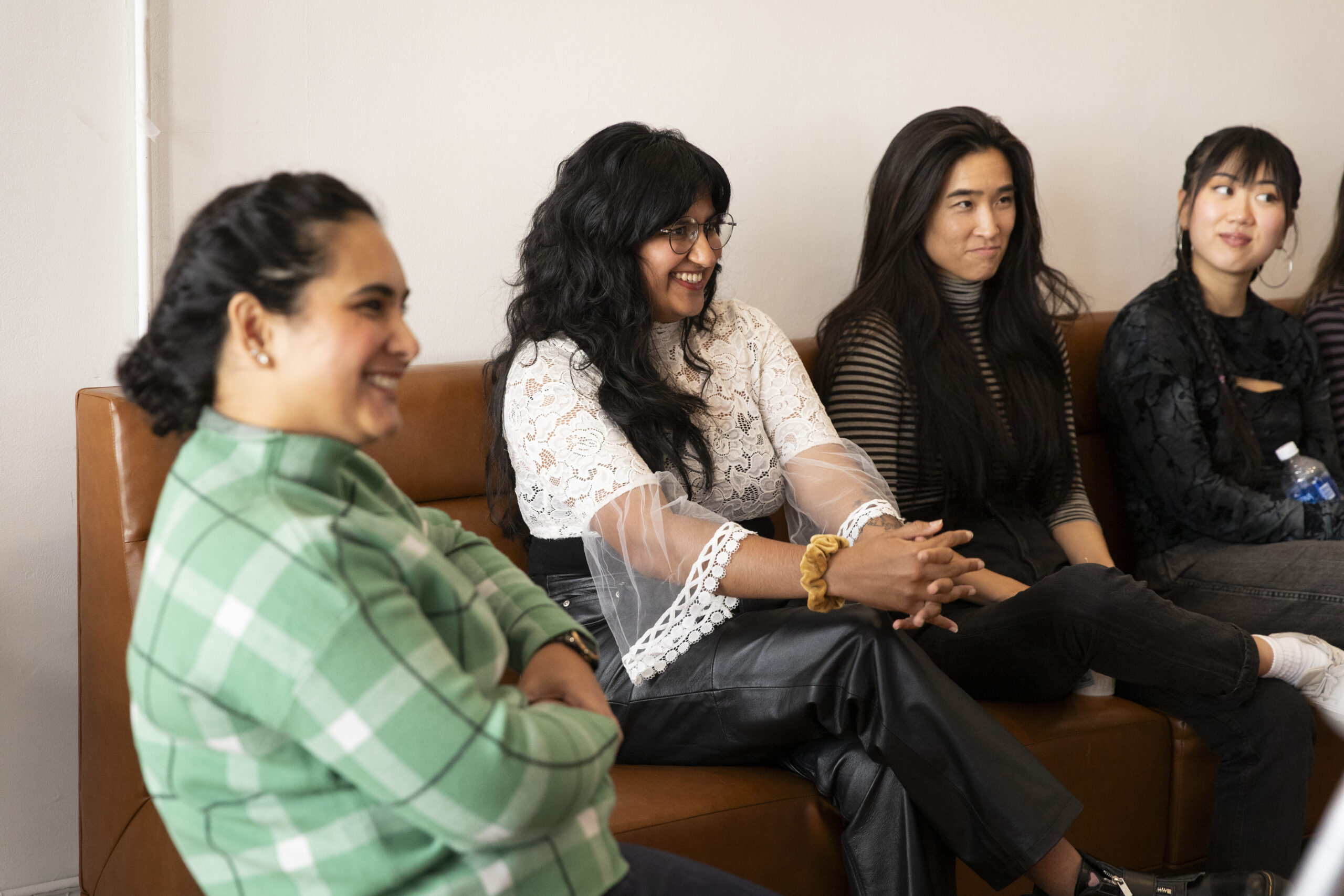
With our defenses lowered, it was easier to give and take advice. Bethany Yeap (Are the Oranges Sweet?) started taking jobs as a production designer so she could observe other directors on set. Emily Jampel (Lucky Fish) began acting in low budget student films until she gained the confidence to lead a production herself. We threw out suggestions for growing in the areas in which we each felt the weakest. At one point, Huriyyah Muhammad (Chocolate With Sprinkles), interjected, “I have a question for everyone. How do y’all make money?” To much laughter, we began an important and necessary conversation about day jobs and side-hustles.
In the middle of the session, I received a devastating phone call— a major financier had pulled out of funding my first feature— and I was back to square one. The normal feelings came in a rush. I’m a fraud. It’s embarrassing to keep calling myself a writer/director. I should quit this pipe dream and go back to a real job with health insurance. Then, Priya Mishra (Only Business) pulled me aside to ask, “How did you pick this group? I was so honored to be one of them.” It was then that I realized the lesson I had to internalize as the heroine of my own story.
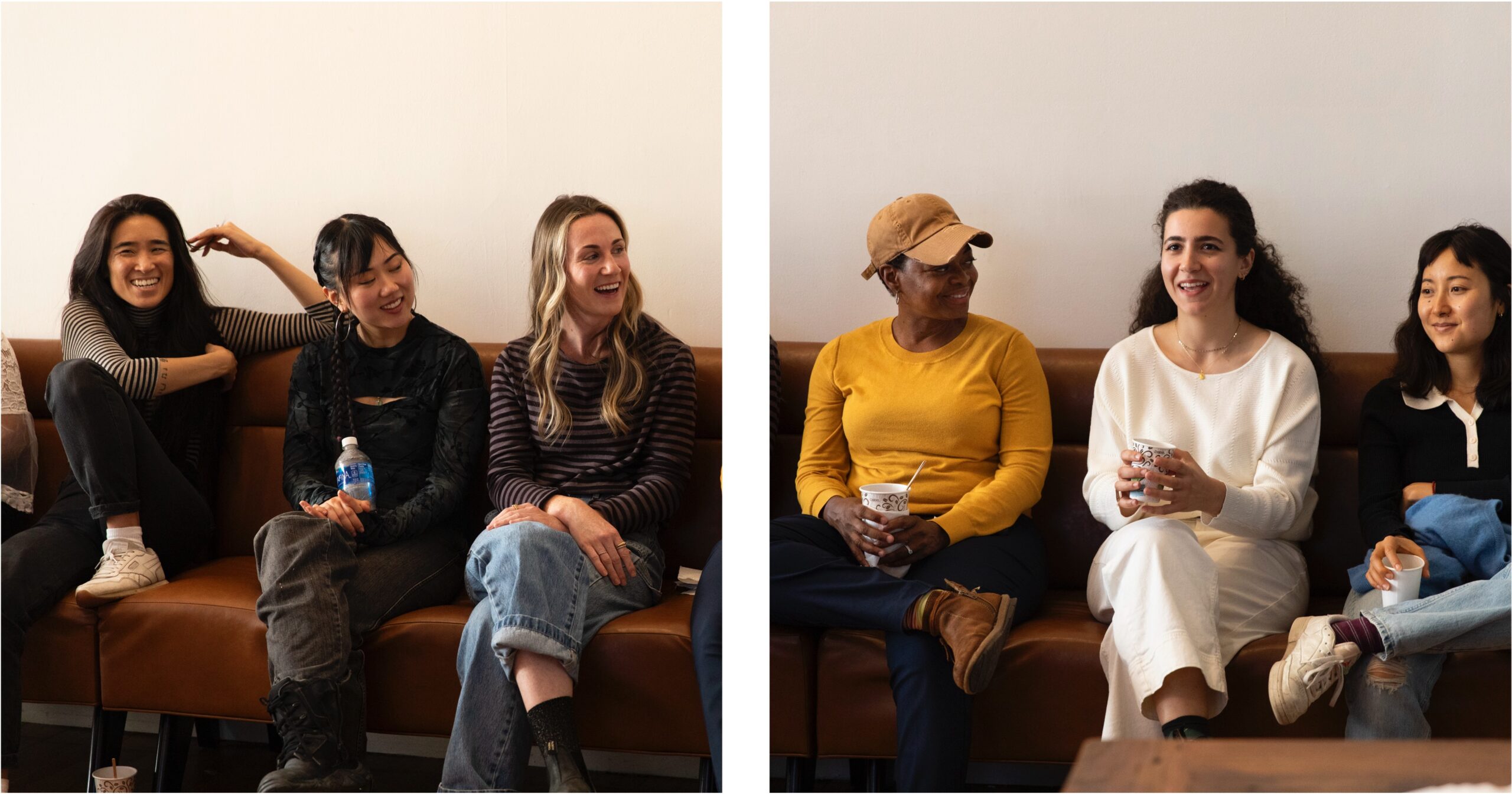
I was proud to tell Priya that I was flooded with applicants. I looked through many reels and watched many films. Once I had a pool of outstanding quality, to my own surprise, it became important that I was choosing people who named themselves directors on their websites. This can be a humiliating title to state publicly, especially if you don’t feel like you’ve “made it” in Hollywood yet. It will take many more months, maybe even years, to find another investor for my feature. In the meantime, it would be much more comfortable to call myself a “video content creator” or an “editor/producer” so that family friends or high school acquaintances will stop plaguing me with questions like, “So, how is your movie going?” Or “Have you made anything I’ve seen yet?” At the same time, if I don’t proclaim myself a director to the world, no one else is going to believe it. And so, I told Priya (while also telling myself), “You made an amazing film and you were brave enough to claim the title. That’s how you manifest your dream: by doing it, and owning it.”
By the end of the day, no one’s career was launched to the next level. No one cracked the secret of how to get into Sundance, and in fact, three of the participants had already screened at Sundance and still felt like they were waiting for their careers to take off. And yet, in that room, with those filmmakers, we began to draw a more realistic road map:
1) Stop waiting for your big break
2) Work your day job
3) Fund your films
4) Apply to grants
5) Continue to build your portfolio and relationships until you find investors with money – even if there’s no guarantee it will happen.
6) Keep going. Keep directing, because nothing on earth makes you feel more alive.
With the heroine’s journey as our new template, we began to forge new futures by our own hands.
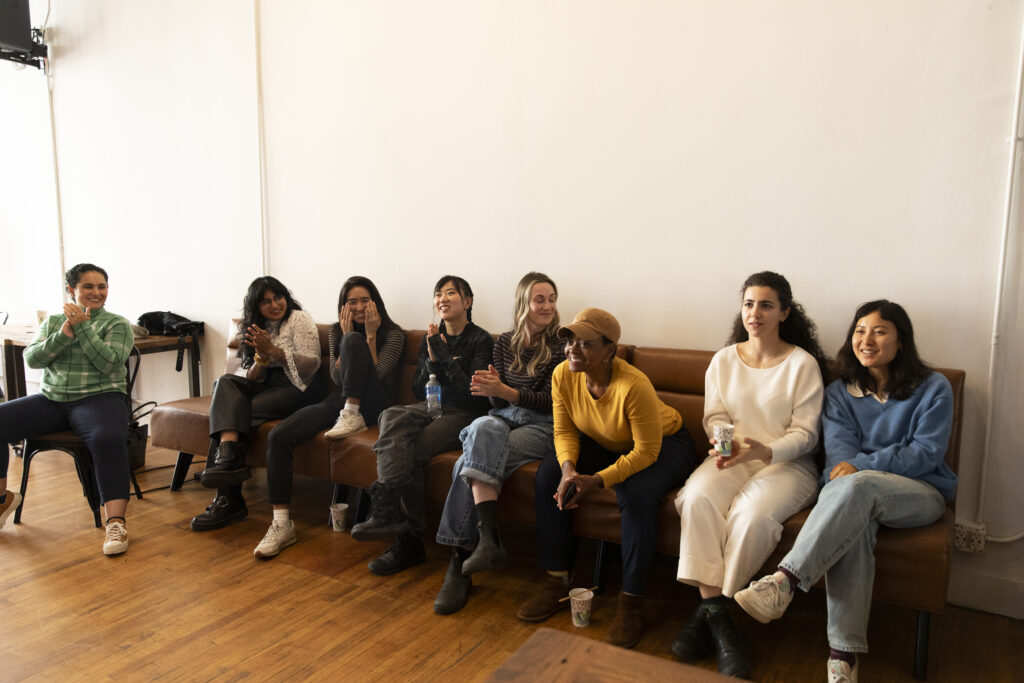
Liann Kaye is a Chinese American filmmaker based in NYC. Her award-winning mini-series “The Blessing” premiered at festivals across the country. The pilot was awarded “Best Comedy” at the New York Short Film Festival and a grant from the NYC Women’s Fund to serialize it. All six episodes premiered on Youtube in 2021, alongside a successful Tiktok campaign. Her first feature screenplay, “Electable” made both the Athena Lab and the Blacklist x WIF Feature Film Residency, where she workshopped it with Sofia Alvarez (Too All the Boys I’ve Loved Before, 2018 & 2020) and Kiwi Smith (Legally Blonde, 10 Things I Hate About You). Her upcoming project Seoul Switch, starring K-POP idol Kevin Woo, will be hitting festivals next year.
All photos by Prisca Edwards.
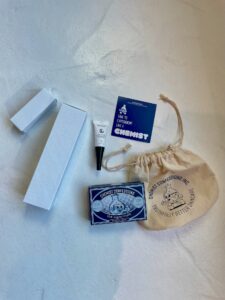
FUTURE LYNN thanks CLE Cosmetics & Chemist Confessions for their sponsorship of this event. We’re so grateful to have had these women-owned brands support a gathering of talented female filmmakers, and hope you can support their small businesses as well.

